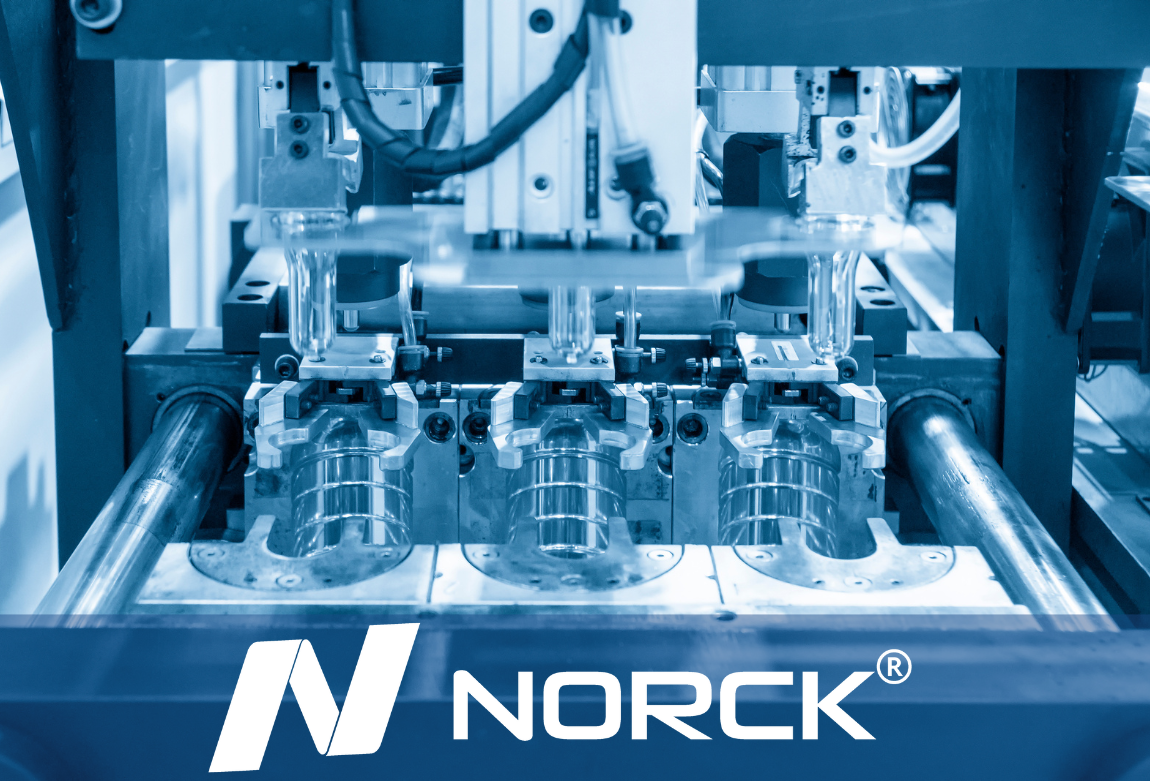Highlighting Norck's Injection Molding Mastery
Injection molding is a cornerstone of modern manufacturing, revolutionizing the production of intricate parts and products across diverse industries. With its ability to create complex geometries, high precision, and cost-effectiveness, injection molding has become the method of choice for producing everything from automotive components to medical devices and consumer goods.
This introduction provides an overview of injection molding and explores Norck's capabilities in this field. Norck, a leading manufacturer specializing in injection molding, harnesses the power of this innovative process to deliver customized solutions to its clients worldwide. With a focus on precision, quality, and efficiency, Norck exemplifies the cutting-edge advancements driving the injection molding industry forward.
This exploration will delve into the fundamentals of injection molding, highlighting its advantages, applications, and future trends. Additionally, we will examine Norck's expertise and capabilities in injection molding, showcasing its commitment to excellence and customer satisfaction.
Understanding Injection Molding
Injection molding is a popular manufacturing technique for creating extremely efficient and precise components and goods. The melted material is injected into a mold cavity, which hardens to take on the required shape. The ability of this method to consistently produce intricate motifs and complex geometries makes it very popular.
Fundamentally, injection molding involves a few essential steps. The mold, usually constructed of steel or aluminum and shaped to fit the intended final product shape, is first prepared. After being melted, the injection molding material—often in the form of pellets or granules—is pumped under intense pressure into the mold. Once injected, the material takes on the mold's shape, cooling and solidifying inside the cavity. The process cycle is then finished when the molded object is released from the mold.
Numerous forms of injection molding are available to accommodate diverse materials and uses. For example, thermoplastic injection molding works well with materials that can be recycled and reprocessed by melting and solidifying them again. Thermoset injection molding, on the other hand, uses materials that, when heated, go through irreversible chemical reactions and solidify permanently. Furthermore, combining several materials or components into a single part through processes like over-molding and insert molding opens up new options for functionality and design.
Get a Quote
Norck’s Unique Capabilities
Excellent Customisation
Norck's dedication to exceptional customization is rooted in its profound comprehension that each project has distinct needs. Norck creates unique solutions that meet and surpass client expectations using cutting-edge technologies and a team-oriented methodology. With the ability to precisely and efficiently realize their vision, Norck's customization capabilities enable clients to meet specified material attributes or complex geometry.
Ability to Prototype
Prototyping is one of Norck's most vital points; it allows quick design iterations and validation. Norck shortens time-to-market and minimizes costs by speeding up the product development cycle through state-of-the-art prototype technology. Norck's agile prototype method, which starts at conception and continues through creation, guarantees a smooth transfer from ideation to production, encouraging innovation and giving its clients a
Precision Engineering
Norck's proficiency in precision engineering, where quality and accuracy are crucial, is the foundation of its business activities. Modern equipment and strict quality control procedures enable Norck to reach unrivaled tolerances in the sector. Norck has earned clients' trust worldwide with its precise engineering capabilities, guaranteeing unsurpassed dependability and performance, whether for high-precision manufacturing for crucial applications or micro-molding for intricate components.
Tackling Micro-Molding Difficulties
Micro-molding is one of Norck's specialties, which makes it stand out in the industrial industry. The intricate nature of precisely molding tiny components makes micro-molding a unique set of challenges. However, Norck can make small parts with remarkable accuracy and consistency thanks to its specialized knowledge, cutting-edge machinery, and rigorous process control. Innovation is fueled by Norck's micro-molding capabilities, which open up new possibilities in various industries, including electronics and medical devices.
Innovative Materials
Pushing the limits of what's feasible in production, Norck persistently investigates the frontier of materials science. Focusing on bio-based materials, sustainable substitutes, and high-performance polymers, Norck leads the way in breakthrough technologies that expand the possibilities of contemporary engineering. Norck keeps its clients updated on the most recent developments in materials technology by working with suppliers and investing in research and development. It allows it to remain at the forefront of material innovation.
Sustainable Options
As a pioneer in environmentally conscious manufacturing, Norck sets the standard in a time when sustainability is critical. Norck's activities incorporate sustainability, from trash reduction programs to energy-efficient procedures. Norck reduces its environmental impact while providing sustainable solutions to its clients by adopting renewable energy sources, optimizing resource utilization, and encouraging recycling and circular economy ideas.
Advantages of Injection Molding
Injection molding is a versatile and effective production method preferred for various products in different markets. Injection molding produces high-quality, affordable solutions for complicated components and large production runs. The main advantages of injection molding as a production method are:
Injection molding is efficient and can produce many pieces fast. After the molds are set up, automation can save labor and ensure product quality. Injection molding's repeatability ensures that every product meets design standards, reducing variance and errors.
Thermoplastics, thermosets, elastomers, and specialized polymers can be injected. Because of its adaptability, producers can choose materials that satisfy their applications' strength, flexibility, heat resistance, and chemical compatibility criteria. Combining or altering materials allows for endless personalization and performance improvements.
One of injection molding's most significant advantages is its ability to make sophisticated parts with complex shapes. Molds can make undercuts, threads, and fine surface textures that other manufacturing methods cannot. With this skill, designers can unleash their creativity and create components with the best functionality and aesthetics.
Injection molding is cost-effective for big manufacturing runs. While tooling may appear expensive, the cost per unit lowers substantially once the molds are formed, making this a viable choice for large-scale production. Injection molding's high-speed manufacturing allows labor savings and output maximization, reducing expenses.
Injection molding provides less waste than other production methods since extra material can be reused. The closed-loop approach of feeding molten material into an accurate mold cavity reduces material loss and increases material utilization. Sustainable activities are supported by process optimization and mold design innovations that reduce material consumption.
Get a Quote
Future Trends and Innovations in Injection Molding
Inject molding is set for exciting discoveries and advancements to improve efficiency, sustainability, and customization as technology develops. Several significant trends are shaping the injection molding industry:
Innovative Materials and Composites
The creation and application of innovative materials and composites are anticipated to be a significant theme in injection molding going forward. It involves adding biobased and sustainable polymers to the mix and functional additions like reinforcements and nanoparticles. These developments will make producing parts with better mechanical qualities, increased durability, and less environmental impact possible.
Additive Manufacturing Integration
Many innovative possibilities exist when additive manufacturing technologies, such as 3D printing, are combined with injection molding procedures. Combining the advantages of both technologies, hybrid manufacturing techniques enable the development of intricate tooling designs, quick prototyping, and on-demand manufacture of customized parts. Increased production flexibility and a more efficient product development cycle are two benefits of this convergence of technology.
Industry 4.0 and Digitalization
Industry 4.0 technologies—such as data analytics, artificial intelligence (AI), and Internet of Things (IoT) devices—make injection molding more automated and sophisticated. Real-time process optimization, predictive maintenance, and quality control are made possible by intelligent injection molding machines outfitted with sensors and monitoring systems. Simulator software and digital twins improve design validation and process optimization, reducing costly mistakes and time-to-market.
Energy Efficiency and Sustainability
Future injection molding trends will prioritize waste reduction and energy efficiency as sustainability becomes more and more critical. Injection molding operations will have a lower carbon footprint because of innovations like energy-efficient heating and cooling systems and incorporation of renewable energy sources. Furthermore, as closed-loop material systems and recycling technologies progress, they will support the circular economy
Customisation and Personalisation
Trends towards increased flexibility personalization in inject molding ding are driven by consumer demand for customized products. Digital manufacturing technologies allow for the fabrication of highly customized parts with distinct colors, textures, and designs, such as in-mold labeling and multi-shot molding. Manufacturers can better serve niche markets and individual tastes thanks to mass customization possibilities, which will increase customer happiness and brand loyalty.
Conclusion
In conclusion, injection molding is a modern industrial staple because of its efficiency, precision, and diversity. Norck, a leader in injection molding, epitomizes industrial innovation. Norck customizes solutions to match clients' needs using sophisticated technology, materials expertise, and quality to provide the best performance and reliability.
The field will be revolutionized by additive manufacturing, digitization, and energy-efficient practices, improving efficiency, customization, and environmental responsibility. Norck leads the industrial industry, ready to adopt new trends. Norck drives injection molding innovation and advancement with a commitment to quality and customer satisfaction.


 English
English